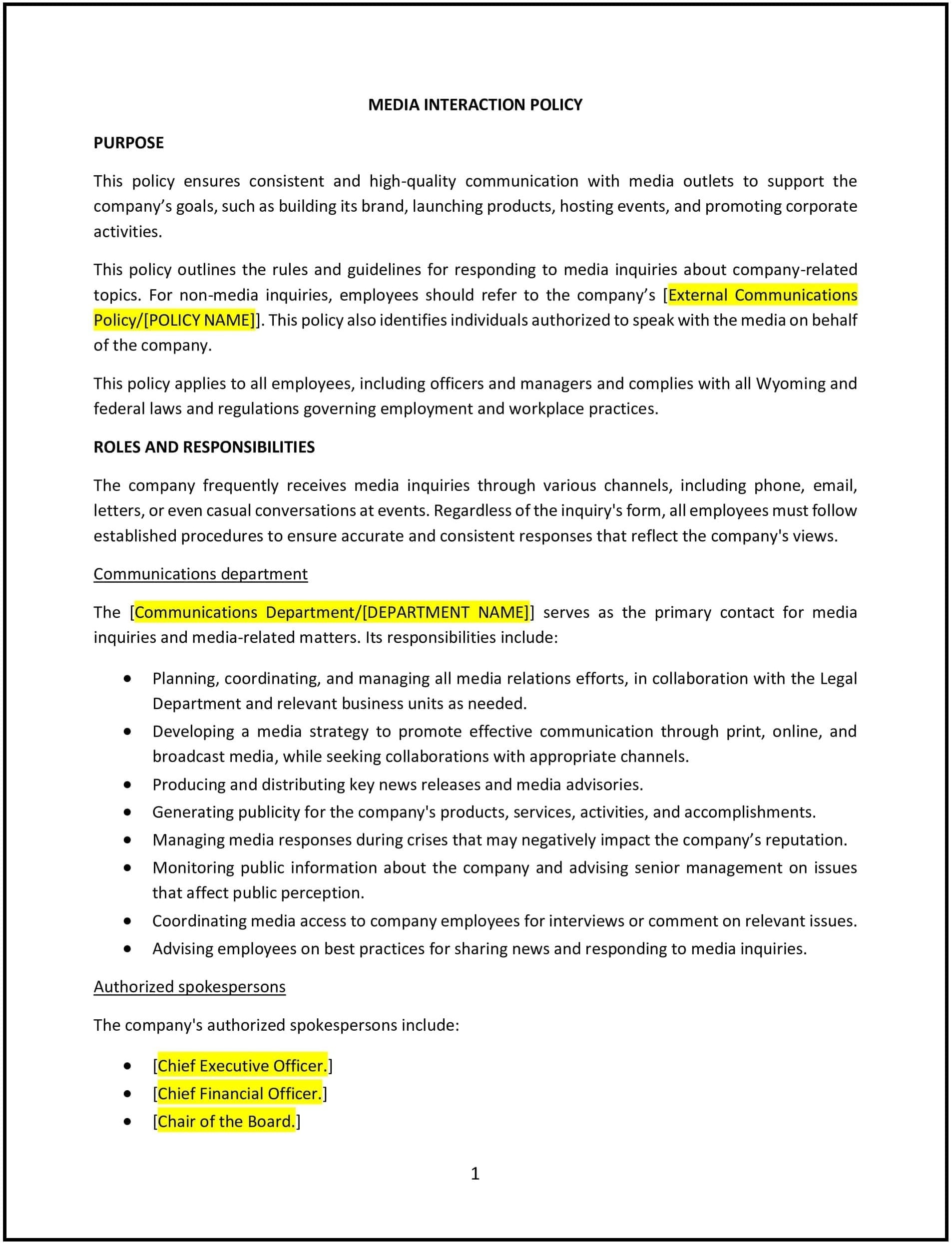Got contracts to review? While you're here for policies, let Cobrief make contract review effortless—start your free review now.

Customize this template for free
Media relations policy (Wyoming)
In Wyoming, a media relations policy helps businesses manage interactions with the media to ensure accurate and professional communication. This policy provides clear guidelines for handling media inquiries, issuing statements, and protecting the organization’s reputation while fostering transparency and trust.
This policy outlines roles, responsibilities, and procedures for engaging with the media, creating a consistent and controlled approach to public communications.
How to use this media relations policy (Wyoming)
- Define authorized spokespersons: Clearly specify who is authorized to speak on behalf of the company, such as executives or designated public relations representatives.
- Establish inquiry protocols: Provide guidelines for handling media inquiries, including directing reporters to the authorized spokesperson and ensuring timely responses.
- Outline approval processes: Include steps for reviewing and approving press releases, interviews, or other media content before publication.
- Protect confidentiality: Emphasize the importance of safeguarding sensitive or proprietary information when engaging with the media.
- Support compliance: Align the policy with Wyoming and federal laws, ensuring adherence to regulations such as truth-in-advertising standards.
Benefits of using a media relations policy (Wyoming)
A media relations policy provides several advantages for Wyoming businesses:
- Ensures consistency: Creates a unified approach to media interactions, maintaining the organization’s messaging and tone.
- Protects reputation: Reduces the risk of misinformation or unauthorized statements that could harm the business.
- Supports compliance: Aligns with legal requirements, minimizing the risk of regulatory issues.
- Builds trust: Promotes transparency and professionalism, enhancing relationships with media outlets and the public.
- Adapts to local needs: Reflects Wyoming’s unique business environment and community-oriented values.
Tips for using a media relations policy (Wyoming)
- Train employees: Provide training on the policy and emphasize the importance of directing media inquiries to authorized spokespersons.
- Monitor media coverage: Regularly review news stories and online mentions to ensure accurate representation of the organization.
- Leverage social media: Include guidelines for responding to media inquiries via social platforms while maintaining professionalism.
- Update regularly: Revise the policy to reflect changes in media trends, organizational goals, or legal requirements.
- Encourage collaboration: Foster collaboration between the PR team, legal advisors, and management to handle sensitive topics effectively.